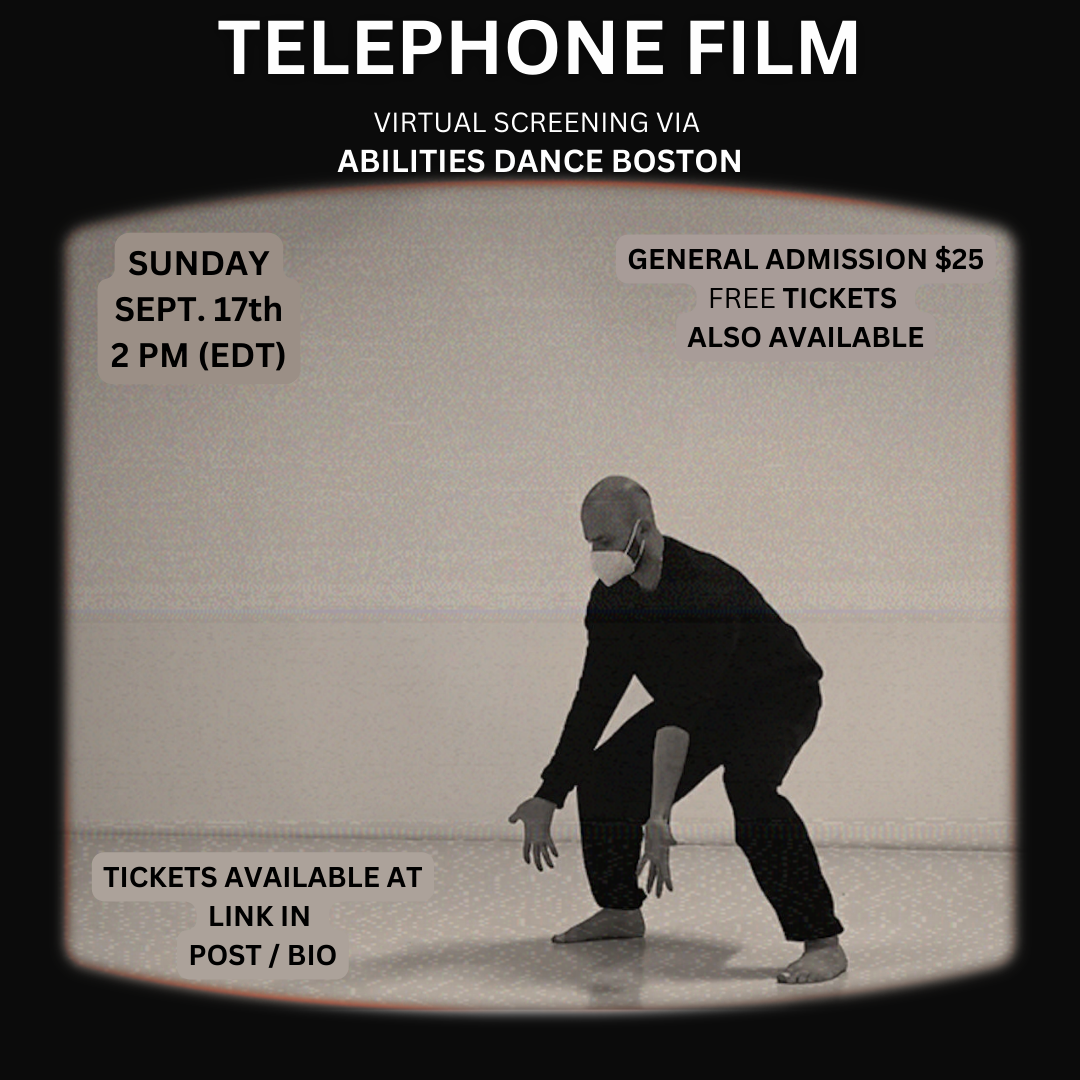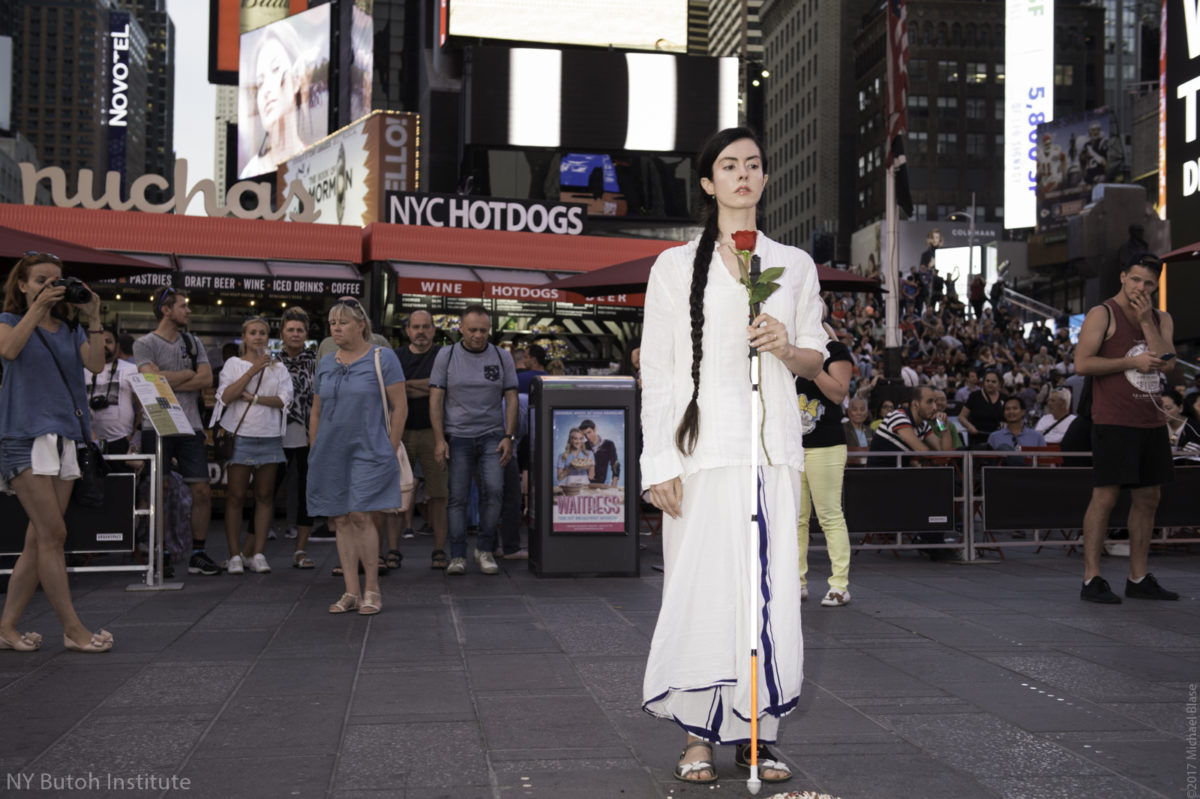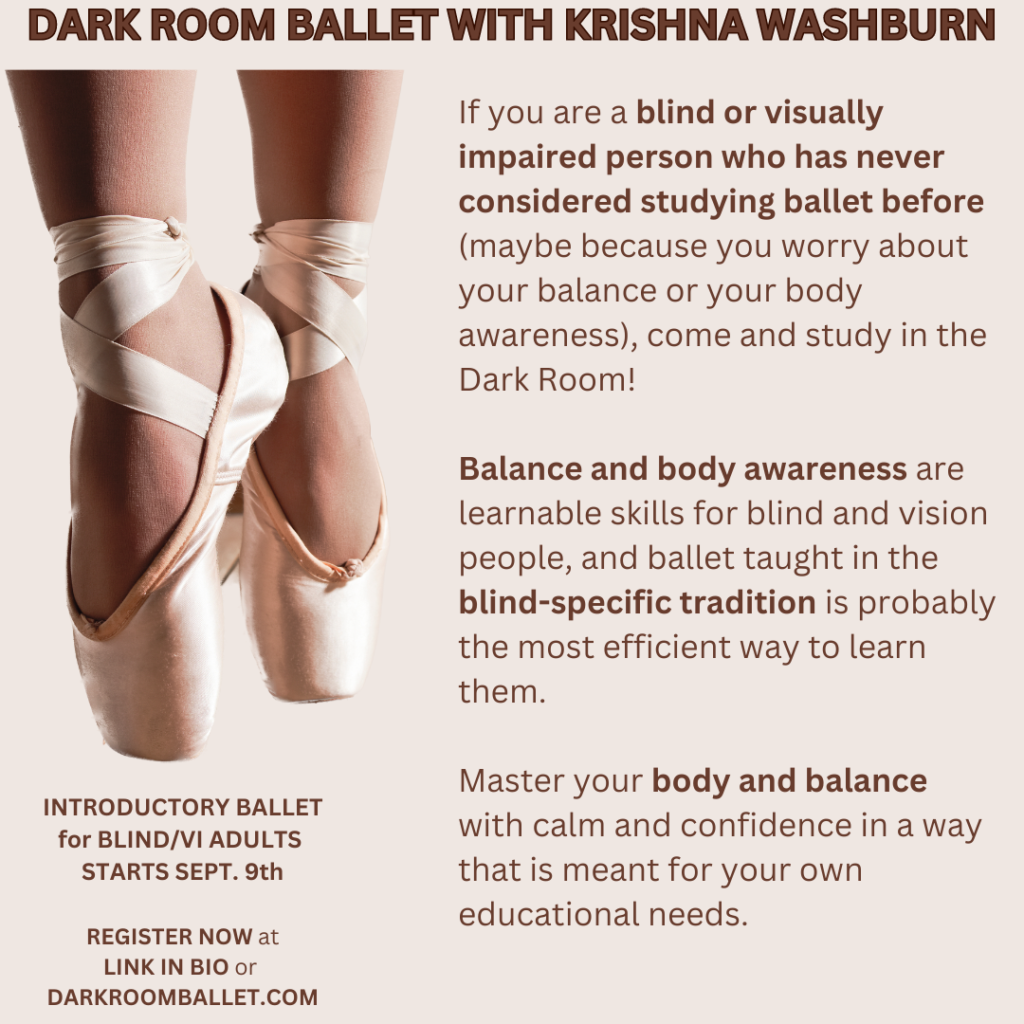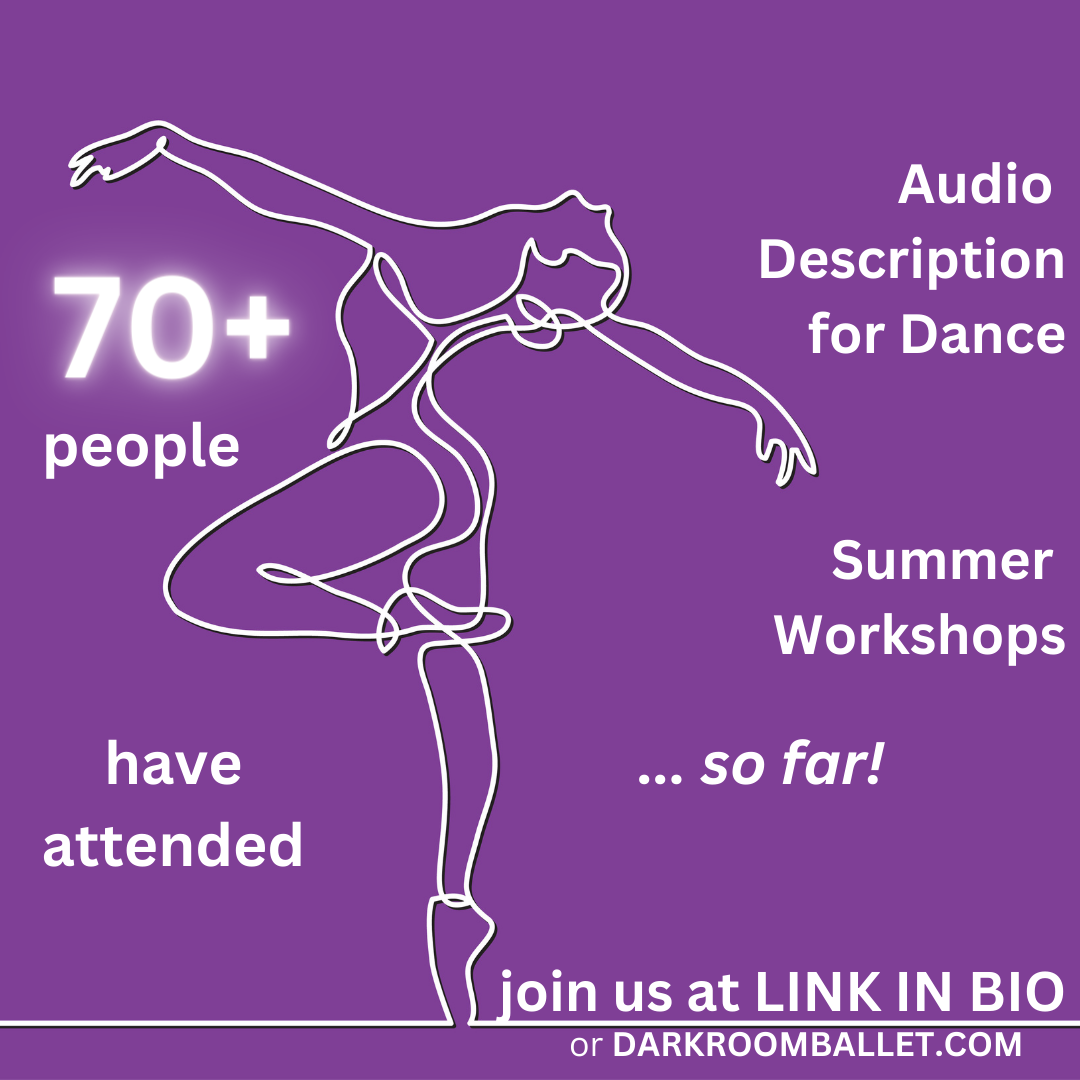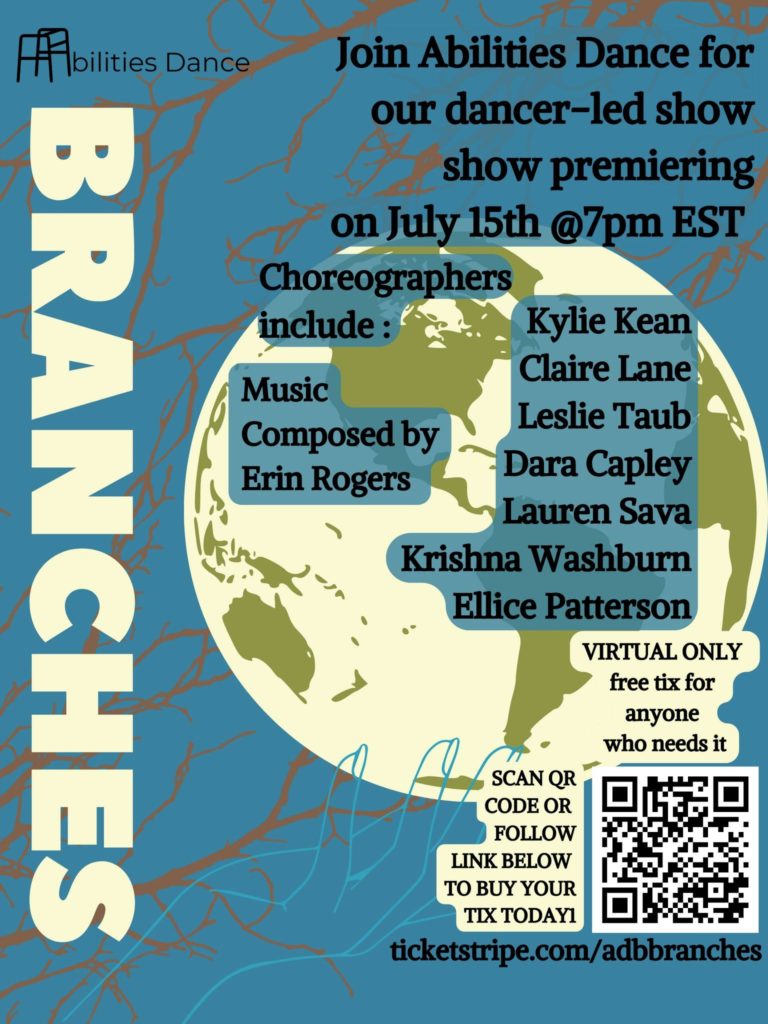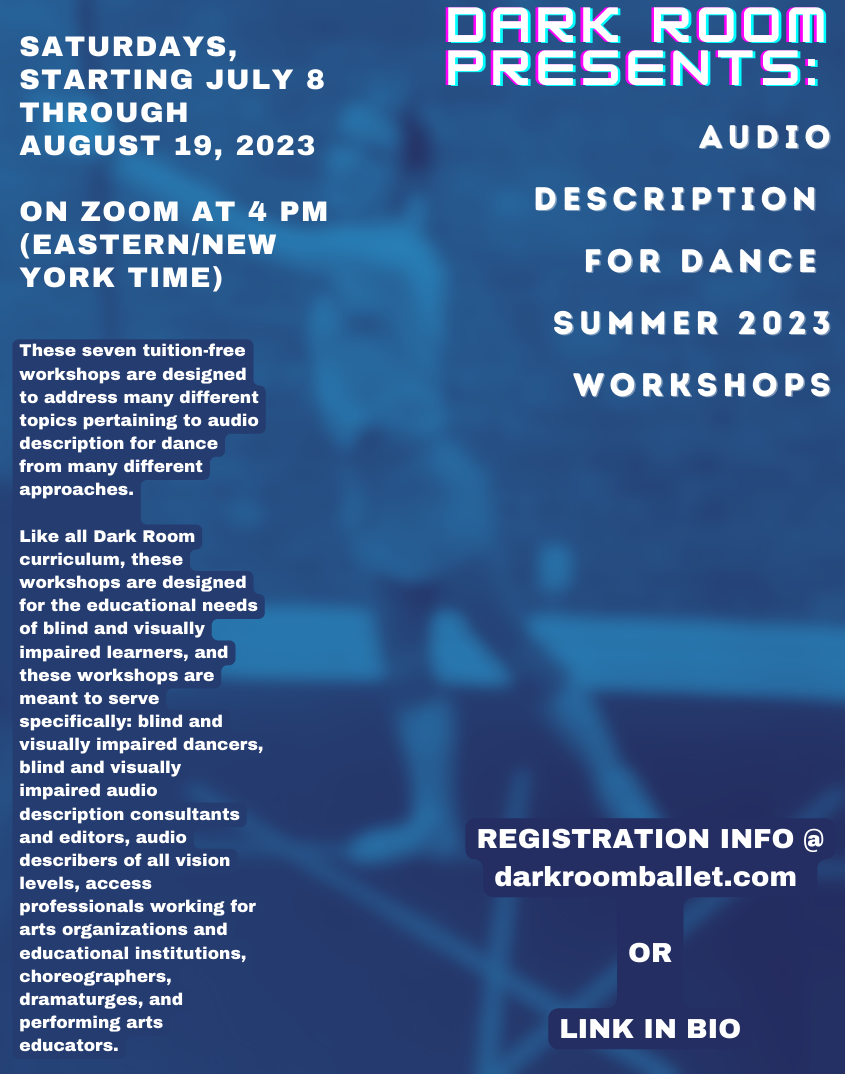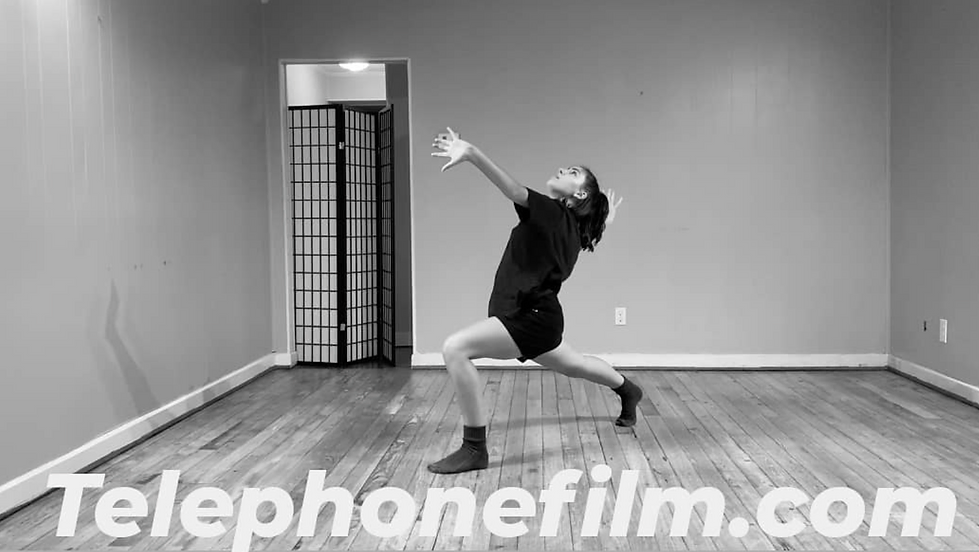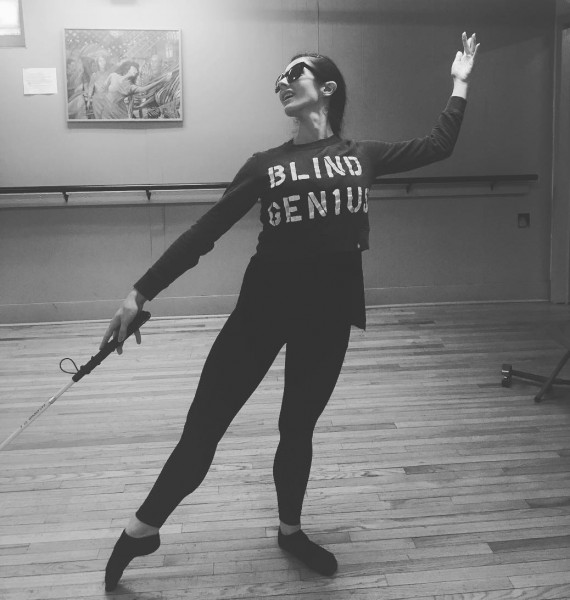Hosted by Movement Research, Dark Room Ballet classes are designed specifically for the educational needs of blind and visually impaired adults (though all are welcome).
NOTE: This is a FREE class, but donations are welcomed.
Dark Room Ballet Pro Class
Saturdays, April 15 – June 3, 2023
4 PM to 5:30 PM (Eastern / New York Time)
This workshop is offered online via Zoom – participants can attend any sessions.
To register, please email:
info@darkroomballet.com and let us know which sessions you would like to attend
Who can take Dark Room Ballet Pro Class?
If you have been studying in Dark Room Ballet Open Level class regularly, and feel confident in your use of tape for orientation and your basic ballet vocabulary, you can take Dark Room Ballet Pro Class.
If you are a blind or visually impaired professional or pre-professional dancer, or a blind or visually impaired dancer who regularly studies in ballet classes designed for sighted people, you can take this class.
If you aren’t sure if you’re ready, ask Krishna during Question and Answer time in Monday night Open Level class (odds are, if she recognizes your voice before you self-identify, she will say yes). If you’ve never taken Open Level, please come! This is a low support class. That means you will not receive a vocabulary email the night before, and the descriptions Krishna uses will rely more heavily on vocabulary than anatomical words.
What is the format of Dark Room Ballet Pro Class?
There is a five-part barre and a two-part center, plus a ten-to-fifteen-minute lecture on how to apply blind-specific dance techniques to advanced ballet techniques. As always, there is Question and Answer time.
Here’s a list of the weeks and the lecture topics:
Session One (4/15): Fifth Position and the Challenges Maintaining Bilateral Symmetry.
Session Two (4/22): Grand Plie — Why?
Session Three (4/29): Strategies for Maximizing Balance in Center Adagio.
Session Four (5/6): Inside and Outside Turns for Dancers That Don’t Spot.
Session Five (5/13): Traveling Turns for Dancers That Don’t Spot.
Session Six (5/20): Flow State and Petite Allegro.
Session Seven (5/27): Grand Allegro and Orientation.
Session Eight (6/3): Blind Dancers, Artistic Identity, and the Difference Between Bravado and Brio.
What makes Dark Room Ballet Pro Class different from Dark Room Ballet Open Level Class?
Krishna says…
1. There is a greater assumption of prior knowledge. In addition to the assumption that students will know the complete vocabulary set of Dark Room Ballet Intro, students should also recognize the following ballet vocabulary terms: pas de cheval, penche and fondu penche, sous-sous, grand battement, glissade, jete, assemble, temps levee, fouette tendu and fouette degage, couru, detournet, soutenou, pique step, faille, developpe through passe, and should be comfortable combining promenade with other movements.
2. The mark for the exercise is quicker. In Open Level class, we mark by practicing a complete side of the exercise at a tempo that is similar to the music. In Pro Class, the mark is much more minimal. If the pattern is en croix or through alternating legs, the pattern might not be marked at all! You might find that the exercises in Pro Class are not actually more difficult than those in Open Level, but they require you to use your logical thinking more and your memory more. This is the case for Pro Classes for sighted people as well, in case you were curious!
3. The verbal description is simpler. In Open Level class, we’re used to hearing Krishna saying as much as she possibly can: anatomical words, body sensations, and ballet vocabulary all mixed together. Krishna’s descriptions are going to sound much more like the descriptions that she, herself, hears in technique class: mostly ballet vocabulary, with certain specific anatomical cues. She will sound less like a computer assistant and more like a human, but she promises to never, ever shut up!
4. You’ll have more chances with certain exercises. For most exercises, you’ll have two chances to master (same across two classes), but there will be other exercises that will carry across three classes.
5. You get a mini lecture on a specific advanced ballet movement concept as it pertains to blind dance technique specifically!
